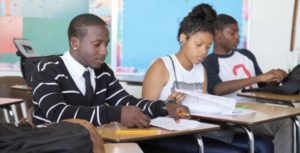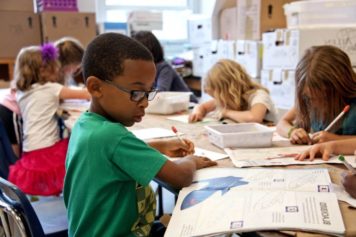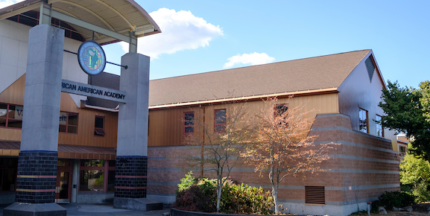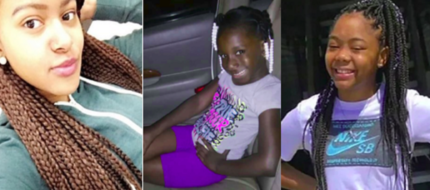
Students at Manual Arts High School in Los Angeles, Calif.
There is a great deal of concern about the school-to-prison pipeline and rightfully so. Our children are being arrested, detained and imprisoned at a staggeringly disproportionate rate compared to every other group. No doubt, there exists a racism- and capitalism-driven system that supports and profits from imprisoning us, children and all. Our children get sucked into this pipeline, that’s one thing. That we serve our children up for the prison-picking is quite another. I’m humbly asking us to consider that the pipeline actually starts at home.
People believe schools are sending our children to prison, but we parents are roughly 87 percent responsible.
There are 8,760 hours in a year, with roughly 1,129 being school-day hours. That means 7,631 hours are spent outside school hours. That’s 87 percent. Which has more impact on our children’s attitudes, behaviors and habits, how they spend 13 percent of their time or how they spend 87 percent of it?
Let’s talk about what happens inside the school day. Firstly, we parents determine how our children show up to school; if they are punctual, late or absent; if they’re adhering to the dress code, have their supplies, homework, etc. We also determine the attitude, habits and intentions — positive and negative — our children bring into the building.
Secondly, remember, learning is a cooperative relationship and can only happen if our child follows the teacher’s lead. In fact, enrolling our child in a school without preparing them with habits for learning is a disservice not just to our child but also to the entire school. (See Preparing Our Children to Succeed in School)
The school-to-prison pipeline doesn’t begin at school. It begins at home. The reason it’s incorrectly named and defined is because School is where our lack of prioritizing the preparation of our children comes to a head; our nonstructure clashes with School’s structure. And, depending on how we parents respond to structure, it can get pretty ugly.
Schools must have rules to establish and maintain order or they wouldn’t be schools, they’d be zoos. Teachers are in charge of their classrooms because they carry the responsibility of teaching all their students. Our overarching responsibility as Home in the Home-School Relationship is to send a child prepared for learning. What good does it do to send our children to school and tell them they don’t have to do what the teacher says? (Yes, people really do that.) That’s just dumb.
But, then, it’s not just dumb. It’s insulting and time draining to the entire school because that attitude is in direct opposition to the purpose of School, and it sets our children up for the prison-picking.
We parents are the ones who initiate the Home-School Relationship. We go to School, School doesn’t come to us. We complete paperwork to enroll our children into an institution with rules, policies and procedures. Then, we do everything we can to help our little angel-beasts ignore them.
We didn’t create the pipeline. That’s the doing of the cowardly, psychopathic, soul-rotted people who continually seek ways to live and thrive on our backs. However, that we habituate our children to be disruptive, disrespectful, lazy and violent, allow them to wreak havoc in schools and the community, then act surprised when they end up in prison is no one’s fault but ours.
Parents, let’s take responsibility and use our 87 percent of the year to prepare our children to succeed in school, and by extension, in life. They deserve our help to be what they came here to be. Besides, we keep telling them they don’t have to obey other people, so who else are they going to listen to?
A.Bolanle Ambonisye is the founder and Director of Unapparencies & Intra-Racial Insight Sensitivity Education, LLC (U&I-RISE) which facilitates “Tapping Our Parental Power” workshops for parents, TOPP Parent Testimonials. She has written a book on raising children entitled “The Difference Between a Child and a Student.” She can be reached at [email protected].


